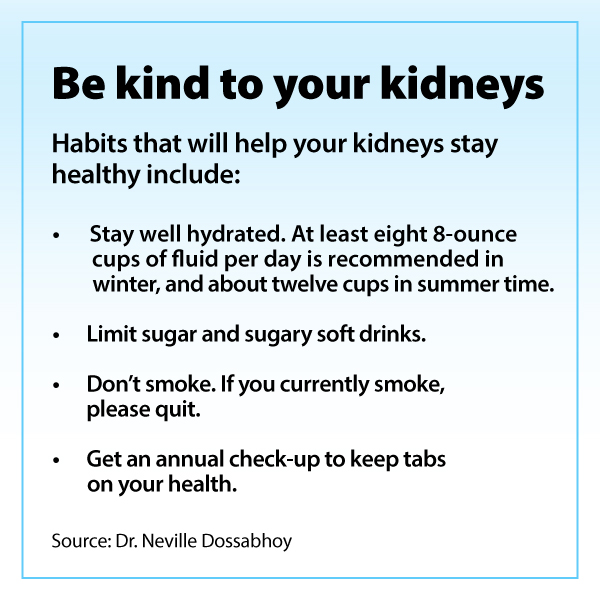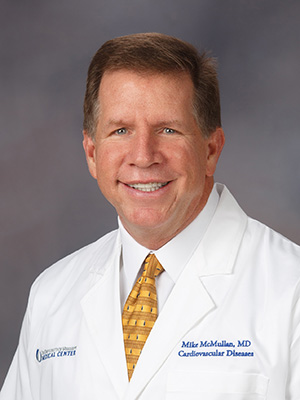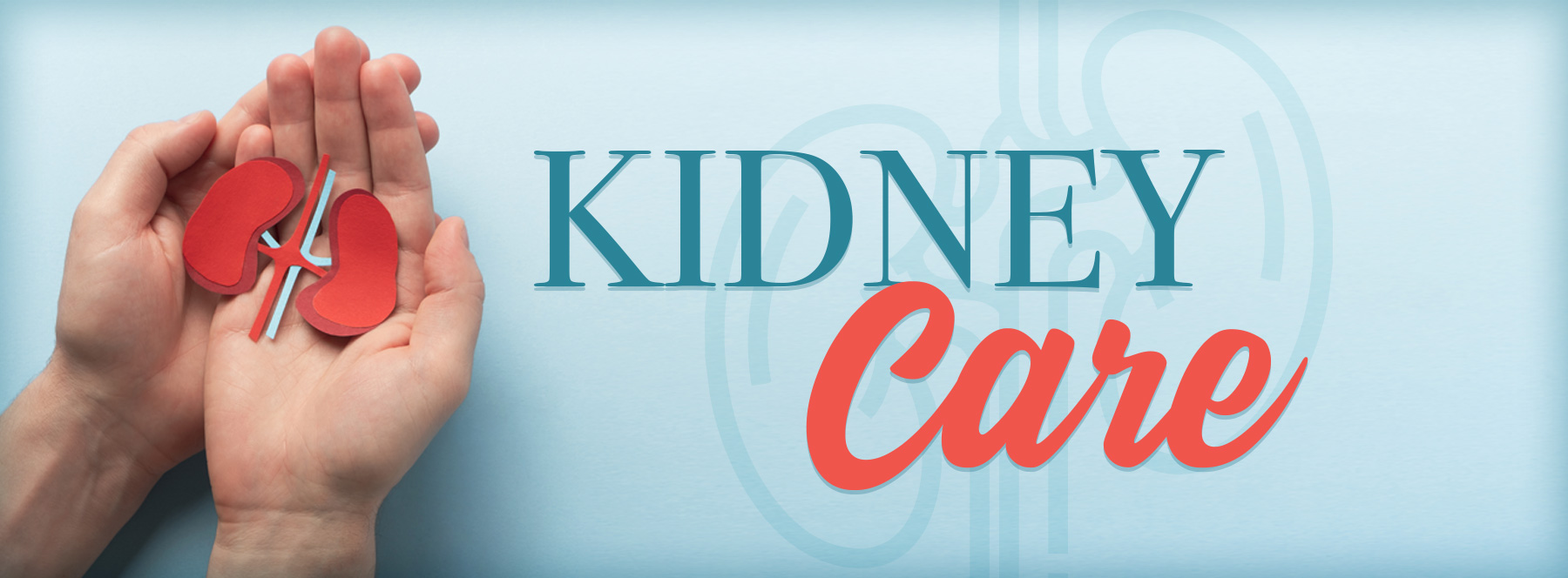UMMC experts: Early treatment can prevent loss of kidney function
Treatments for chronic kidney disease are more plentiful than ever, but only if the condition is diagnosed early.

“We have had more developments in the treatment of kidney disease in the past nine to 10 years than in the last 50 years; but those medications can’t reverse damage or restore function that’s already been lost,” said Dr. Neville R. Dossabhoy, chief of the University of Mississippi Medical Center’s Division of Nephrology.
The kidneys, each about the size of one’s fist, filter all the blood in the body, removing wastes, toxins and excess fluid. This pair of powerhouses also control blood pressure, signal the body to make red blood cells, regulate blood chemicals that are essential to life and help keep bones healthy.
About 35.5 million adults in the U.S. are estimated to have kidney disease, according to the National Institutes of Health, and most of them are undiagnosed.
Conditions such as diabetes, cardiovascular disease and high blood pressure can damage the kidneys over time, leaving them less able to filter the blood as well as they should. Kidney damage can also be caused by conditions such as inflammation of the kidneys’ filtering units (glomeruli and tubules), polycystic kidney disease, prolonged obstruction of the urinary tract and recurrent kidney infections.
The gradual decrease in kidney function comes with few if any symptoms in the condition’s early stages, so kidney disease is usually diagnosed through routine laboratory tests. Signs of kidney disease usually appear when the condition is in advanced stages.
“This is why it is important to have an annual physical,” Dossabhoy said. “Once you have symptoms of kidney disease, the cat is out of the bag.”
Symptoms of late-stage kidney disease include nausea, vomiting, loss of appetite, fatigue, decreased urine volume, swelling of feet and ankles, high blood pressure that’s difficult to control, shortness of breath (if fluid builds up in or around the lungs) and chest pain (if fluid builds up around the lining of the heart).
Chronic kidney disease (CKD) can be diagnosed through blood tests for creatinine, a chemical compound from energy production in muscles that is filtered by the kidneys, and urine tests for protein. High blood creatinine and high urine protein levels indicate the kidneys are not filtering as well as they should.
CKD can also be diagnosed through a blood test for the kidneys’ glomerular filtration rate (GFR). A lower GFR reading could indicate CKD as well as cardiovascular disease. GFR gets its name from the glomeruli, the parts of the kidneys that filter blood.

With the recent advent of GLP-1 agonist and SGLT-2 inhibitor drugs - as well as ACE inhibitors, angiotensin receptor blockers and mineralocorticoid receptor antagonists - the decline in kidney function can be slowed and, in some cases, stopped. None of those treatments are approved for those with less than 20% to 25% kidney function, Dossabhoy said, “so the kidney disease has to be caught early.”
Best results are achieved when medication is paired with lifestyle changes.
“An ounce of prevention is worth a pound of cure,” Dossabhoy said, citing the high rates of obesity, high blood pressure, heart disease and diabetes, all of which put patients at risk for kidney damage. Lupus, an autoimmune disease, can cause lupus nephritis, a condition that can damage the kidneys and reduce their function.

Checking for early signs of kidney damage is also part of cardiology visits at University Heart, said Dr. Michael McMullan, director of the Division of Cardiology at UMMC.
Patients with high blood pressure (hypertension) or congestive heart failure are checked for kidney disease and so are patients whose medications may affect the kidneys or potassium levels and those who are taking newer anticoagulants that are cleared through the kidneys, he said.
“Primary care providers usually do a great job of checking kidney function, so we often work with them as well as our hypertension specialists here at UMMC.”
For an appointment, call 601-815-2005 or make an appointment online.
The above article appears in CONSULT, UMMC’s monthly e-newsletter sharing news about cutting-edge clinical and health science education advances and innovative biomedical research at the Medical Center and giving you tips and suggestions on how you and the people you love can live a healthier life. Click here and enter your email address to receive CONSULT free of charge. You may cancel at any time.



